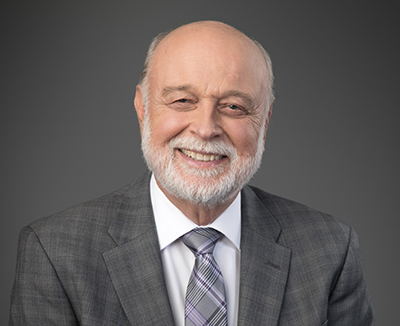 |
| December 2017 |
|
The art of receiving
What a farmer in Croatia and a goat herder in Tanzania can teach us about gifts Judy and I were walking home from campus one day to our little quadraplex on Court Street when Mrs. Alphie Hadley drove by in the other direction in a rear-engine Chevrolet Corvair. This was 50 years ago and I was a first-year medical student. Mrs. Hadley, who was the wife of the associate dean of students, turned around and drove back alongside us, offering us a ride. We politely refused, since we were close to home and it was a nice day. But I have since regretted how we denied her the privilege of helping another. We often talk about the joy of giving, knowing the impact and benefit it gives to each of us. What we talk less about is the art of receiving — and how to do it well. Some gifts have expectations in return, what the Chinese call “guanxi.” Others are given out of love or respect. Many cultures mandate that certain people receive gifts at special events, often due to a power differential. It has always seemed to me that the art of receiving takes some thought and talent to do well. And if giving provides special benefits, we can assist in that process by receiving well. Gifts that are given with no expectation of a return seem the most precious to me. Offering a seat on a bus, or a better place in line, or assistance with a load, or your upgraded seat on an airplane, often brings the most joy to the giver. Refusing those offers may seem appropriate at the time, but denies the giver the satisfaction of being generous. In 1972, Judy and I, with our oldest daughter Chandra, were on our way to work in Africa for the first time. On the way, we visited Dubrovnik, the picturesque Adriatic city in what was then Yugoslavia and is now Croatia. One day while driving, we spotted an elderly, weather-beaten lady raking hay. Thinking it would make a great picture, I stopped and stepped over the low fence while holding Chandra, who was 18 months old at the time. The farm lady put down her rake and started coming toward us, then suddenly stopped and went off in the other direction. I wasn’t sure if we had offended her or committed some cultural faux pas. She went across the field, bent over and picked up something, then started back toward us. We waited, not knowing what to expect. As she reached us, she held out her hand, holding a little turtle she remembered seeing earlier in the day. I will never forget those leathered hands and face, holding our little golden-haired daughter, as together they enjoyed the wonders of that turtle. A gift to a total stranger that she had the generosity to give and we had the wisdom to receive. We all left that chance meeting feeling special. Several years later we were living in Dar es Salaam, Tanzania, where I was based in the national Ministry of Health to develop a maternal and child health program for the country. We had a VW camper and were headed across the country to some important event I have long forgotten. I had the family with me on this trip, now with our middle daughter Briana. We ran out of daylight, making it unsafe to travel further, and had pulled off the road behind some acacia bushes to spend the night. About 5 a.m., just as it was starting to get light, I heard a gentle knock on the camper door. There was no evidence of civilization when we stopped the night before, so I was surprised that anyone was around. But the knock was persistent, so I rolled over in bed, reached out, and opened the sliding door. There stood a little, old goat herder in tattered clothes, with a smile on his face. He held out a battered tin cup full of warm goat’s milk. He was herding his flock in the area, had heard our baby cry in the night, and had gone out early to milk his goats and bring some for the baby. This was giving at its best — to total strangers he had never seen before and would soon be out of his life again. Yet the human spirit of giving prompted a generous act, and we were the recipients of a magical gift. At this time of year, between our two great holidays of thankfulness, join me in appreciating those who give and receive generously. May that be the spirit of Loma Linda University Health and of each one of us who claim its heritage. Have a Merry Christmas,
Richard H. Hart, MD, DrPH Vision 2020 – The Campaign for a Whole Tomorrow
|
December 7, 2017
Notes from the President — the Art of Receiving
Share


